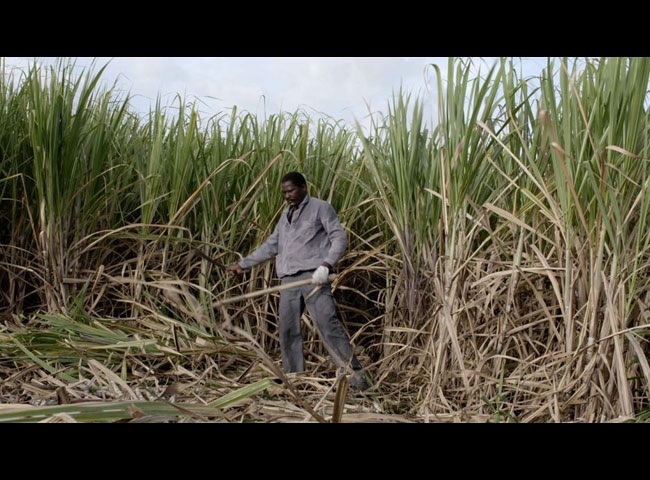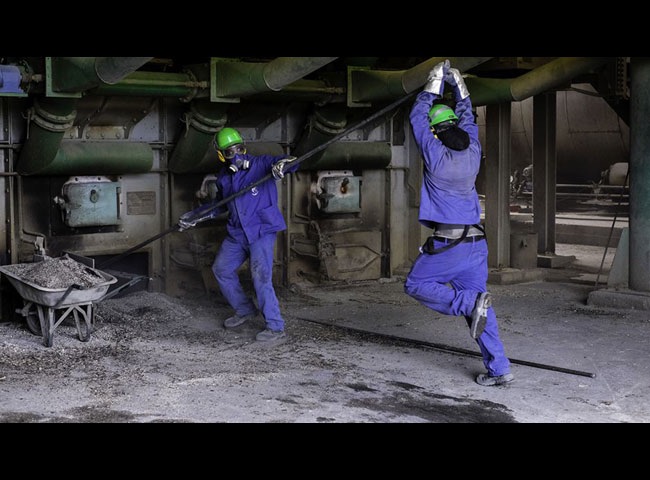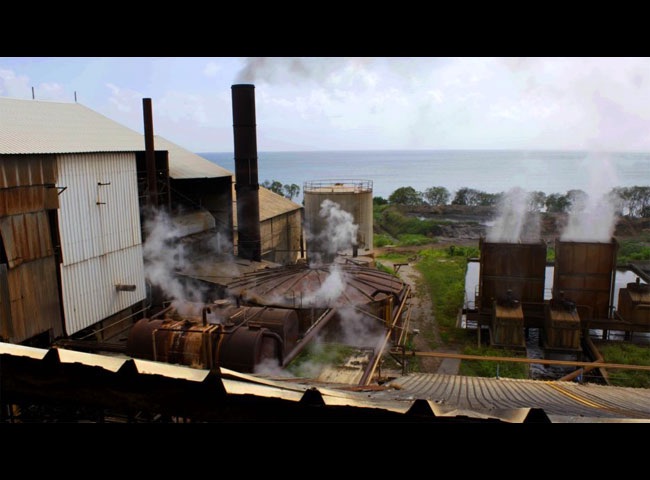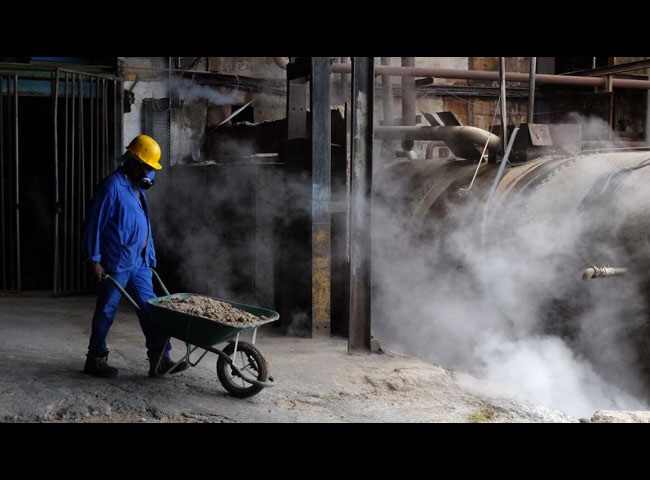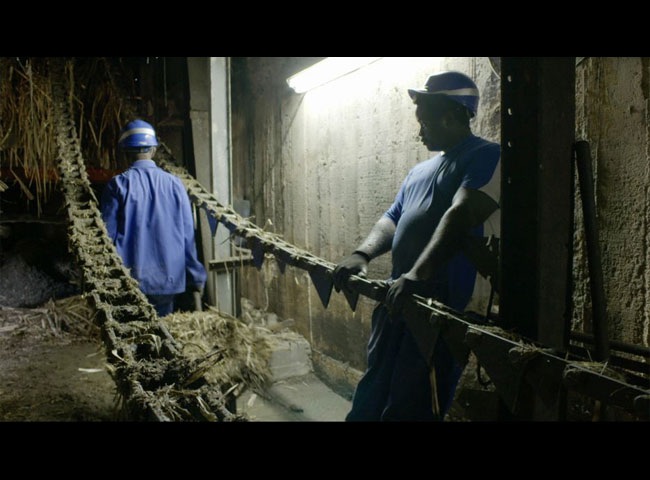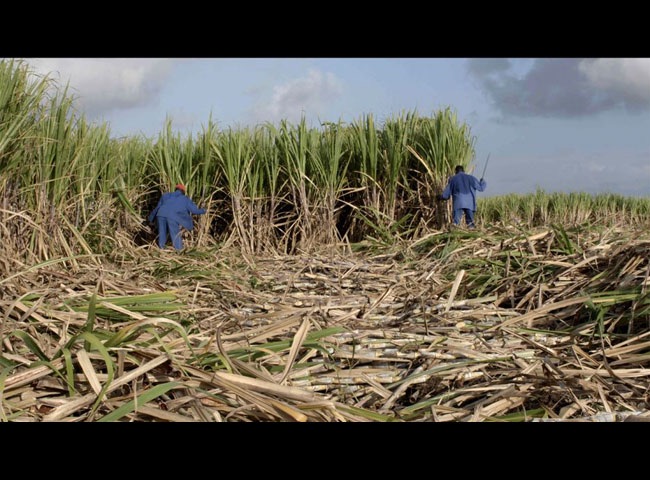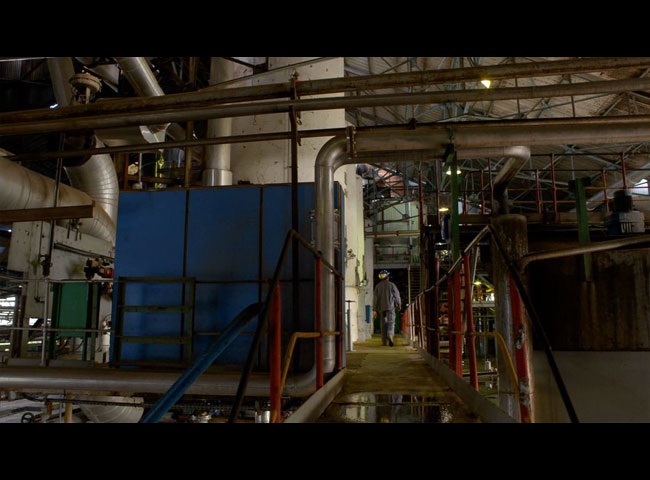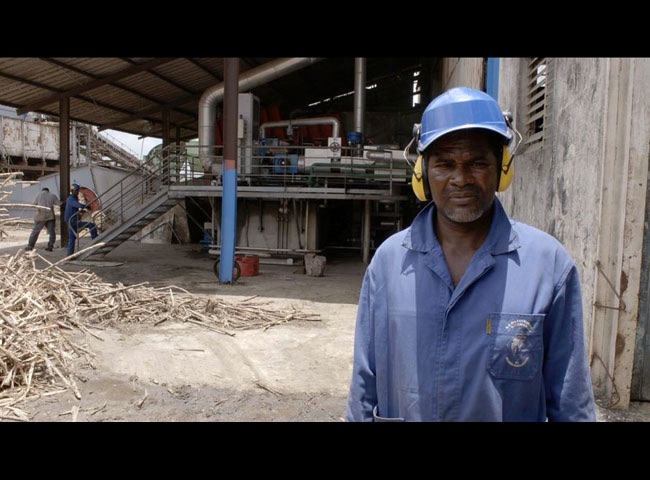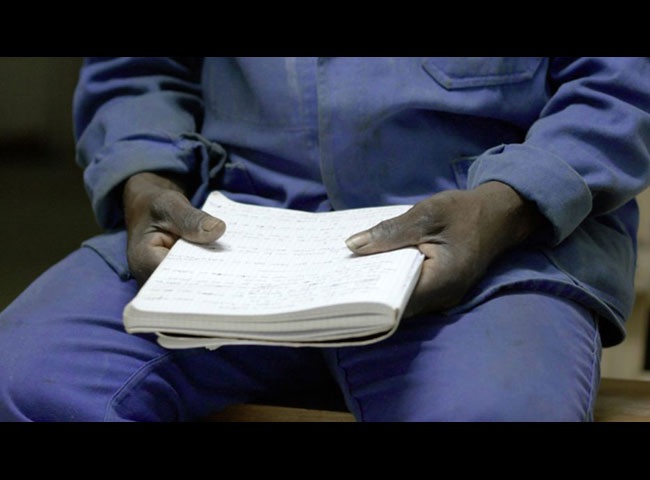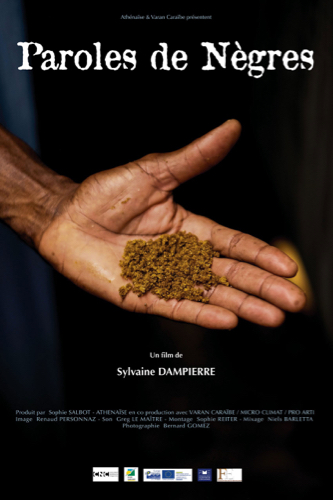Paroles de nègres
-
Réalisé par Sylvaine Dampierre • Écrit par Gilda Gonfier, Sylvaine Dampierre
-
France • 2020 • 78 minutes • Couleur
- Réalisation :
Sylvaine Dampierre - Écriture :
Sylvaine Dampierre, Gilda Gonfier - Image :
Renaud Personnaz - Son :
Grégory Le Maître - Montage :
Sophie Reiter - Étalonnage :
Anne-Sophie Queneuille
- Production (personne) :
Sophie Salbot - Production (structure) :
Athénaïse - Coproduction :
Varan Caraïbe, Micro Climat - Participation :
ProArti, CNC, Région Guadeloupe, Fondation Esclavage et Réconciliation - Ayant droit :
Athénaïse
- N° ISAN :
non renseigné
Résumé
À Marie-Galante, depuis le temps de l’esclavage, la canne et le sucre façonnent le destin des hommes. Aujourd’hui les ouvriers de Grand Anse vouent leurs forces et leurs espoirs à la survie de leur usine sucrière à bout de souffle. Prêtant leurs voix, le temps d’un film, aux paroles retrouvées de leurs ancêtres esclaves, ils redonnent vie à une mémoire oubliée. Contre l’effacement de leur monde, ils rompent le silence des nègres.
"On Guadeloupe, an archipelago in the Caribbean, the past speaks up. Sylvaine Dampierre has the workers of an old sugar refinery read passages from the transcripts of an 1842 court case, while the machines roar and groan in the background. The testimonies of the slaves from back then in the rusty halls of today give rise to a polyphony both explosive and poetic in nature.
The “Grande Anse” sugar refinery is a monster from a distant past: Flames like long tongues spew from the furnaces, piles resembling bones everywhere. The workers cut them with machetes in the plantations of Marie-Galante, a tiny island that belongs to the archipelago of Guadeloupe. The long bones, the sugar cane, are the scaffold that keeps everything together here. Sylvaine Dampierre is in the thick of it, shows the pulsating factory and the hard labour that goes on inside. Seasonal workers come and go; the men organize themselves. They are free. There are occasional flashes of the peculiar bond with France, of which this overseas territory is an integral part, but Dampierre foregrounds the transcripts of a court case from almost two hundred years ago, in which slaves testified against their violent master. An act of self-empowerment, whose gestus the director brings into dialogue with the present."
(Carolin Weidner - DOK Leipzig)
Mot(s)-clé(s) thématique(s)
À propos du film
Sélections et distinctions
- 2021 • DOK Leipzig - International Leipzig Festival for Documentary and Animated Film • Leipzig (Allemagne) • International Competition Long Documentary and Animated Film
Comment avoir accès au film ?
- Sortie en salle
-
Édition DVD
- Il n'existe pas d'édition DVD à notre connaissance
-
Accès VOD
- Il n'existe pas d'accès en VOD à notre connaissance
- Diffusion non commerciale / Consultation
